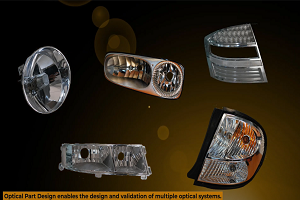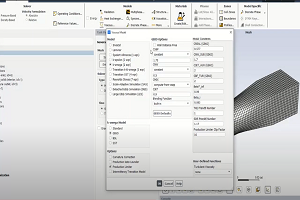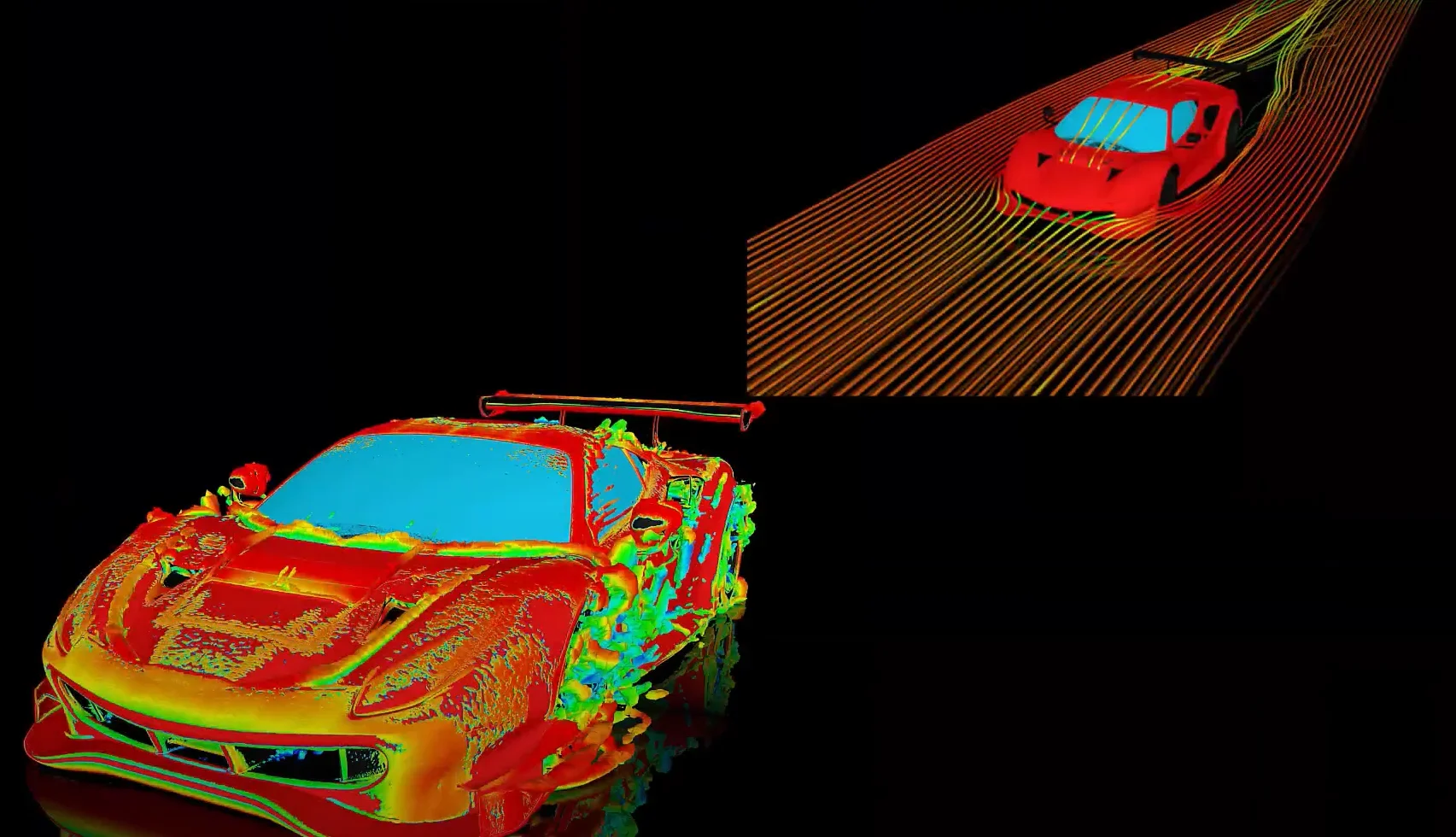How can I make sure that transient results are written at specified times during a restarted run? In the initial run it is OK to specify a TIME INTERVAL. If this run is stopped on an intermediate time step, how do I control the writing of these files from a restarted run? If frequent saving of transient results is needed, then it is difficult to write a TIME LIST.
Tagged: 19.2, cfx, fluid-dynamics, General, General - CFX
-
-
April 5, 2023 at 2:32 pm
 FAQParticipant
FAQParticipantThe easiest way to do this would be to restart the run from the last full transient file but that would mean repeating some time steps. An alternative would be to include a Perl script in the ccl to write a TIME LIST. The following example will write the transient files (in this case standard but the script can be modified to write partial results) at 9.5s and then every following 0.25s up to 200s. ! use strict; ! my $t=9.5; ! my @list; ! for (my $i=0; $i<200; $i++) { push @list,sprintf("%s [s]",$t+=0.25) } ! my $steps = join(', ',@list); FLOW: OUTPUT CONTROL: RESULTS: File Compression Level = Default Option = Standard END TRANSIENT RESULTS: Transient Results 1 File Compression Level = Default Option = Standard Time List = $steps END END END Please refer to the section on Power Syntax in ANSYS CFX in the ANSYS CFX for more on the use of Perl scripts. The script can be included: * using the Command Editor in CFX-Pre * using the cfx5cmds command to extract the ccl from the def file so thatt it can be edited in a text editor and then writing it back in, e.g.: cfx5cmds -def mydef -text myccl -read to extract cfx5cmds -def mydef -text myccl -write to write the edited ccl into the def file * write a short section of ccl as shown above and include it in the run using the -ccl argument to the cfx5solve command, e.g.: cfx5solve -def mydef -ccl myccl
-


Introducing Ansys Electronics Desktop on Ansys Cloud
The Watch & Learn video article provides an overview of cloud computing from Electronics Desktop and details the product licenses and subscriptions to ANSYS Cloud Service that are...

How to Create a Reflector for a Center High-Mounted Stop Lamp (CHMSL)
This video article demonstrates how to create a reflector for a center high-mounted stop lamp. Optical Part design in Ansys SPEOS enables the design and validation of multiple...

Introducing the GEKO Turbulence Model in Ansys Fluent
The GEKO (GEneralized K-Omega) turbulence model offers a flexible, robust, general-purpose approach to RANS turbulence modeling. Introducing 2 videos: Part 1 provides background information on the model and a...

Postprocessing on Ansys EnSight
This video demonstrates exporting data from Fluent in EnSight Case Gold format, and it reviews the basic postprocessing capabilities of EnSight.

- How to overcome the model information incompatible with incoming mesh error?
- What are the requirements for an axisymmetric analysis?
- How to create and execute a FLUENT journal file?
- Skewness in ANSYS Meshing
- How can I Export and import boxes / Systems from one Workbench Project to another?
- What is a .wbpz file and how can I use it?
- How can I select interior faces and other entities that are inside the model?
- What are pressure-based solver vs. density-based solver in FLUENT?
- Error: Update failed for the Mesh component in Fluid Flow (Fluent). Error updating cell Mesh in system Fluid Flow (Fluent). View the messages in the Meshing editor for more details.
- How to get information about mesh cell count and cell types in Fluent?

© 2025 Copyright ANSYS, Inc. All rights reserved.

